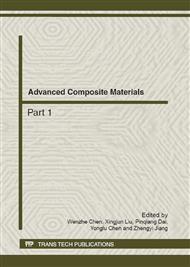p.81
p.85
p.89
p.95
p.99
p.103
p.109
p.113
p.117
An Echo State Network Based on Error Compensation for Prediction of Nonlinear Time Series in Industry
Abstract:
The prediction accuracy of nonlinear time series is highly related to the dynamics of the data. In this study, a method based on error compensation is proposed to improve the accuracy of nonlinear time series prediction, especially for the problems in industry. First, an echo state network is modeled to describe the system complexity and then an error compensation is constructed based on least square support vector machine (LSSVM), in which a genetic algorithm is designed to select the training samples for LSSVM so as to reduce the negative impact by noise mixture. To verify the quality of the proposed model, a class of industrial problem for gas flow prediction is employed, and the experimental results indicate that the method gives a better performance than the others.
Info:
Periodical:
Pages:
99-102
Citation:
Online since:
February 2012
Authors:
Price:
Сopyright:
© 2012 Trans Tech Publications Ltd. All Rights Reserved
Share:
Citation:


